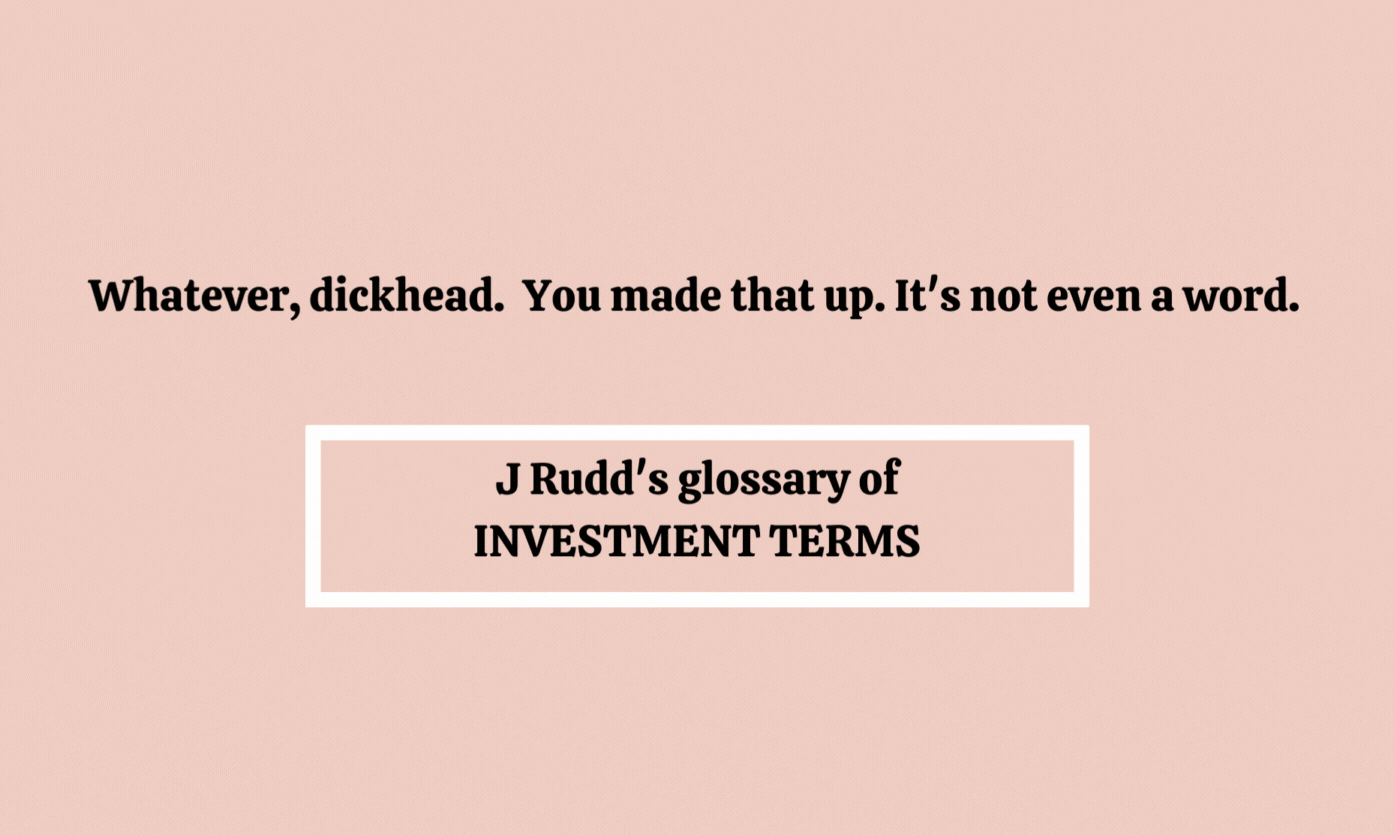the idiot’s guide to investment terms
investment glossary. here’s the skinny.
You’re a new investor. Over lockdown 2020, while everyone else was whacking 1.5kg of white flour and a cup of cinnamon sugar a day onto their arses, you spent 16 of every 24 hours on your new website selling equipment and services to get working-from-home ready. Within a few months your website had 1m visitors a day and a 5-figure monthly income. Someone came along and bought it for a few million dollars, and now you’re cashed up and unemployable after spending two years in your jimmies watching cat videos in between selling sustainably-sourced automatically raising stand desks.
Or, you’re a founder. For the last decade while your mates have travelled the world, you’ve been in your nan’s spare room writing code for deep fake videos so that you can ‘star’ in your favourite movies. Fuelled by two-minute noodles, all-nighters, and the vision that one day you’ll be Reece Witherspoon in Legally Blonde, you now need a load of cash so you can hire software developers and rent an office and do all the things needed to get your business to a point where you can attract paying customers. You have an email database of 100,000 people who’ve all paid $1 each for a GIF of their faces on Reece Witherspoon’s body, so you know you have a market.
This glossary of terms is for founders who need to up-skill, STAT. Most founders come to capital raising having never even heard of it before, and are faced with rooms full of investors who’ve done this a gazillion times, and absolutely love a mouthful of jargon. I know I do. It makes me feel important and clever (even though I know that it actually makes me look like a twat).
And it’s for new investors to navigate the vocab so they can offload some of their newly earned moola into businesses who’ll change the world for the better. Because that’s what investing’s all about for me. We have so much power when we put our money towards the kind of world we want to live in, led by people who give a massive shit. I want fund founders who make kind decisions for the world and make everyone’s lives better.
INVESTMENT TERMS
Capital
Money, dollars, cash
Capital raise
When a founder swaps equity (shares) in her business in exchange for investment capital (money). “Beany is doing a $1.2m capital raise.”
Runway
Length of time needed to develop the product. The idea is you ask for an amount to give you enough runway to develop your product properly. “I’m raising $1.5m for an 18 month runway”.
Back-of-fag-packet calculation (feel free to use this complex algorithm for your next Series A) - capital raise/burn rate = runway
Founder
The person who starts the business. There are often co-founders. Starting businesses isn’t easy. It’s best to do it with (clever and hardworking) mates.
Cap table
Short for capitalisation table. It’s a list of who formally owns shares in a company. Smaller shareholders are sometimes grouped together and register their shares are recorded under a nominee company’s name.
Nominee company
These keep cap tables nice and clean. If lots of people from the same angel investing group want to invest small amounts, they can come together and a nominee company will record everyone’s investment amounts, and just have the nominee’s name on the cap table (see fig 1)
Burn rate
How much cash the start up is burning through each month before it’s making any decent revenue. What are the monthly outgoings? Loosely speaking, capital raise amount/burn rate = runway.
MVP
Minimum viable product. Don’t spend forever getting your service perfect, just smash it together and get it out in the market, then tweak it with customers’ feedback.
…more added as they pop into my brain.
Note: if you have a better description for any of these words or phrases, email me jenny@aimsure.co.nz. I’m here for it!

